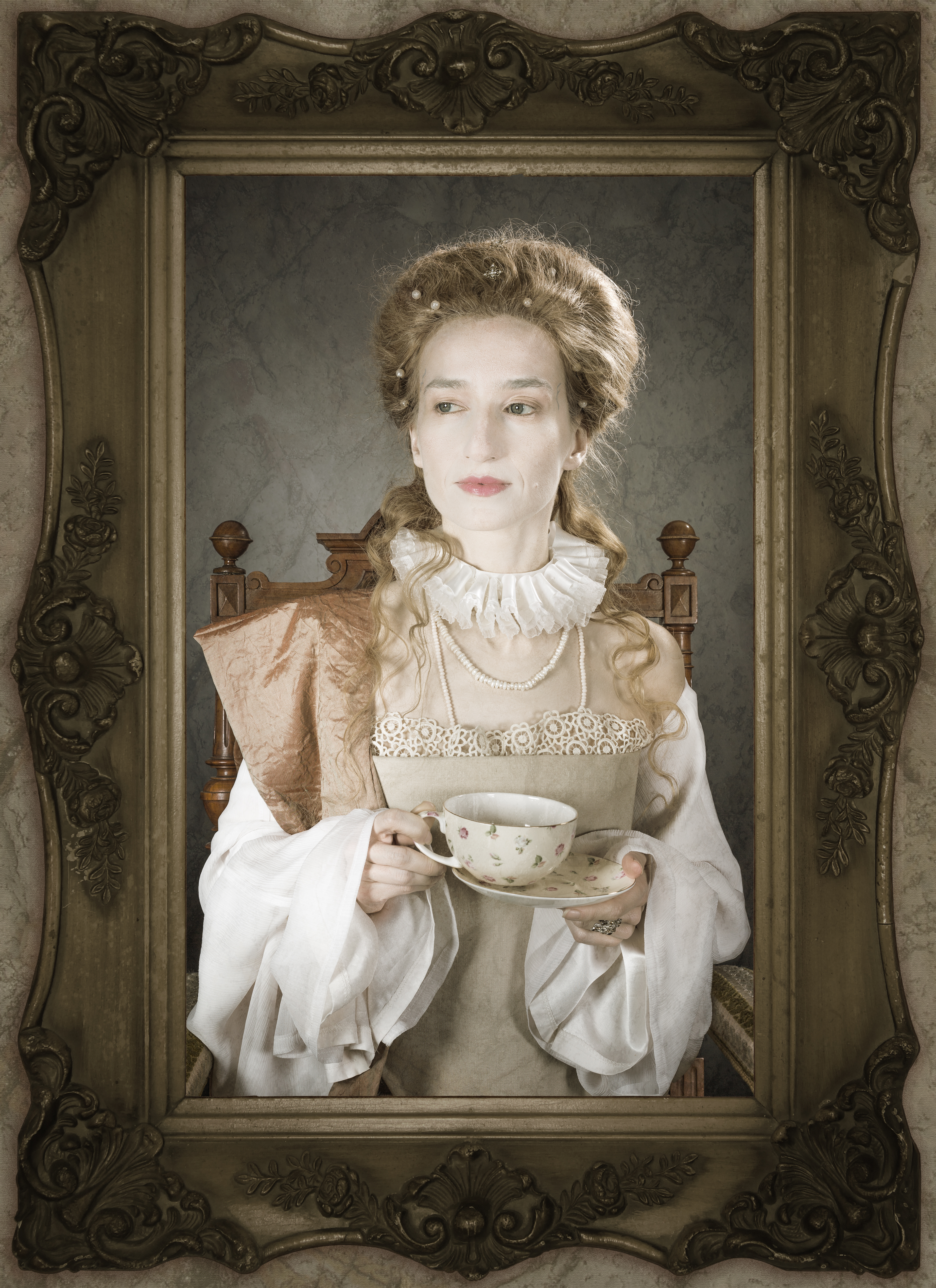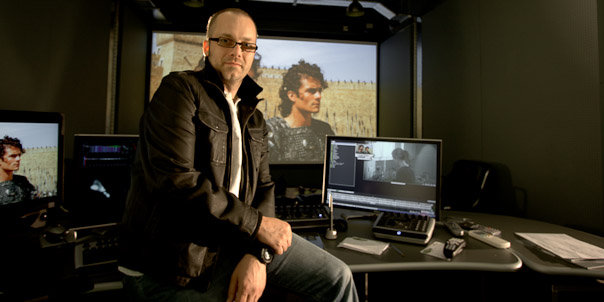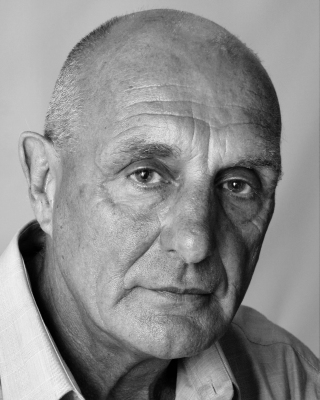ASK & DISCUSS
INDEX"How to Reveal Your Character’s Backstory Wound" Oh Yawn.
10 years, 6 months ago - Karel Bata
The title of this caught my eye
http://www.scriptmag.com/features/how-to-reveal-your-characters-backstory-wound
I've been growing increasingly tired of this approach to adding 'depth' to characters in recent movies. Superhero movies are smothered in it: you want a deep character? Add some childhood trauma. Oh yawn.
Only members can post or respond to topics. LOGIN
Not a member of SP? JOIN or FIND OUT MORE
10 years, 5 months ago - Dan Selakovich
This started in the 80s, and I understand where Karel is coming from. It wasn't enough to show a character as a bad person, but for some reason, we needed to show WHY he is a bad person. We didn't need to know why the King in "The King's Speech" stuttered. Just that he did.
Having said that, I'm not against backstory as a concept, but it must be handled with great care. It must be used as exposition is used: you slip it in when it's organic to do so. Not use the first act as a psychological springboard for character. As for super hero movies, the audience for those films WANT an origin story. (Spiderman, for example, would have been pointless without an origin story, as would "Breaking Bad" for that matter). That's a bit different than "mommy took my rubber ducky away from me at bath time, so now I kill people."
10 years, 5 months ago - Paddy Robinson-Griffin
Aren't we all the sum of our past experiences? Haven't we all experienced trauma of some kind? Doesn't it drive us all to some extent? When in doubt, go back to Shakespeare, and several of his plays acknowledge the effect of trauma on later behaviour, and partial resolution of inner trauma/conflict is a powerful motivator/breaking of cycles.
I'd agree that taking a 2D heroine and adding trauma doesn't make them 3D, but conversely I'm finding it tough to think of many fleshed out characters that don't have a textured back story. Margaret Atwood is excellent at writing character, hers are always very richly drawn, and it's the noteworthy life events influencing motivations that rings true.
10 years, 5 months ago - Marlom Tander
I have seen some excellent student films. Their common characteristic, brevity. A quick punchy idea well done and no time to let the audience see the joins. I always like to think that it's because the director knew the limits of the material he had to work with.
The problem with long student films is that they tend to be overwritten/weak from a script POV and/or it gives the audience time to realise that no one can actually act. (Hardly surprising as good acting is damned hard and rare skill, and however generous the audience feels, they are comparing it to professional acting.)
If I was giving advice to young film maker it would be to have a great script, a great cast and great sound. Get that right and your audience (unless a bunch of picky lecturers) will forgive you almost anything re how it LOOKS.
Collage staff OTOH can see past a dodgy script and poor acting (viewing good of either as a nicer bonus) and mark you on sound and vision. But don't confuse their technical judgements with those that a real audience makes.
10 years, 5 months ago - Karel Bata
So the only interesting characters are those who are dealing with the fallout from some kind of trauma? A simple trauma of course, something that's easy to stick on the screen.
I think that's a really lazy way to create a character with any (supposed) depth. Especially working backwards, as the article seems to suggest (now who shall we have abusing him/her as a child..?) and in the interests of keeping it understandable to the audience this inevitably leads to a trite bit of pop-psychology.
I see it on the screen all the time. Now I get where it comes from - writers are being actively taught to do this! I can imagine script editors saying, "You're character's not deep enough. Where's the childhood trauma?"
/rant
10 years, 5 months ago - Paddy Robinson-Griffin
This is why I always say the best attribute a short film can exhibit is brevity! It's even cheaper to shoot and allows you to concentrate on the good stuff! ;)
10 years, 5 months ago - Paddy Robinson-Griffin
@Dan Selakovich Indeed, being an editor I imagine you're best placed out of the whole food chain to see if a scene is contributing it's share to the flow of the film. Maybe the awkward, unerotic sex scenes did add their value in the context of a pre-internet world and 14-year-olds being 14!!
Of course you can't nail a back story onto a flimsy character and pretend it's depth, but done skilfully where it isn't a distraction, it can make you care for the characters in a way it's otherwise easy not to.
In episodic TV terms, who gives a crap about the back story of CSI Miami characters? They are identikit and the dialogue could prey much be spoken by any of them with interchangeable results. Better Call Saul, being a recent example of a show that's all character, we get to know and understand the guy, his actions make sense, only he would say the words he says. I suppose my grumble is that considering how poorly drawn most characters are, anything that can make them less of a sketch is a plus. But not when it's as cynical as '2D plus trauma equals 3D'
10 years, 5 months ago - Dan Selakovich
@Paddy Robinson-Griffin You just triggered a nice memory, Paddy. I learned directing from Alexander MacKendrick (Man in the White Suit, Lady Killers, Sweet Smell of Success), and he had this to say: "Student films are either too long, much too long, or very much too long."
Indeed.
10 years, 5 months ago - Paddy Robinson-Griffin
Breaking Bad is an interesting one, as is it's offspring Better Call Saul (which I really enjoyed - precisely because it is pretty much all character back-story).
I'm not sure the objective size of the trauma is important - peoples experience of trauma is what it is, it's not a competition, and you don't get extra points for abduction over being beaten to being bullied - it's still traumatic, and unresolved will play out in later life. For instance, people with childhood sexual abuse in their histories often play it out at either extreme of behaviour later on. People for instance don't decide to commit suicide for no reason, there's always a story there. Humans have back stories, all of them. If our characters are supposed to be human, they are the sum of experiences and often subconscious motivations.
If the rubber ducky was genuinely traumatic *to an individual*, then if they don't resolve it, at some level it'll remain a trauma and infirm their actions. Maybe it makes them poverty conscious, maybe something else, but unresolved trauma has real repercussions (ask any PTSD war vet if you want). Should that be ignored in a story where their actions and motivations are a part of the action? I don't mean splashing it all over like an 80's after shave cologne, but at least inform the writer of the characters direction and motivation.
Something more irksome to me is the overdone 'serial killer leaving clues' trope. Real serial killers are extremely rare, and don't appear at the convenient one-per-show-per-week frequency TV would have is believe. And leaving a series of clever clues to baffle plod is just moronic. 'Police believe The Sudoku Killer will attack again tonight, killing 1, 4 or 9 victims'. I'd take a bit of appropriate character context over that, any day.
10 years, 5 months ago - Dan Selakovich
I don't disagree, Paddy. As long as it moves the story and doesn't stop it. Often backstory is like a love scene: OK, let's stop the story so we can have a 2 minute sex scene. It's not necessary.
I just finished 2 seasons of "Hannibal". A beautifully done series. At no point did I ask myself "I wonder why Hannibal Lecter is like this?" So I think it's about the story you are telling and the balance of telling the audience what they need to know to keep it moving forward.
10 years, 5 months ago - Dan Selakovich
@Paddy Robinson-Griffin I can't tell you how many times I've tried to get rid of love scenes, but was forced to keep them in (except for one old producer who preferred the old Hayes Code way of showing sex. I prefer that too. It shows more about character than "getting it on.")
10 years, 5 months ago - Alève Mine
It seems that it is a concept that was hijacked from acting techniques. For acting, that is something that is and remains outside of the script.
Otherwise it's like explaining why a joke is / was supposed to be funny. It ruins it. Believe me: I'm good at that. :)
10 years, 5 months ago - Marlom Tander
@Dan Selakovich
In that case, yes. If backstory isn't part of the story, don't foster it on the audience. But do know it as it can help the actor.
10 years, 5 months ago - Dan Selakovich
Hey, Allan. Sandy taught narrative film at California Institute of the arts for about 25 years. He started in 1969, and was the founding dean of the film school.
There was literally nothing you could ask him that he hadn't heard a thousand times before. He had this big bulletin board with dozens of cards stuck on it, each with a rule. No matter what question you had, he'd not say anything but take a stick and point to the card without even looking at the board. Of course, if you still weren't getting it, he'd explain, but usually the card was enough. He not only knew everything, he was amazing at teaching it. And after watching dozens of shorts at the end of every year, I'd say he was mostly right. Of course you had a few great ones. And the animation department had films that were pretty much always good (but when you draw frame by frame, you tend to cut out the fat before you start that labor intensive process).
Just so you know, at Calarts, we didn't have limitations on what we could make, except of course, our own money. Students made everything from 1 minute films to features. So there was no fulfilling some arbitrary requirement of length, style, etc. You were just required to do work.
10 years, 5 months ago - Dan Selakovich
I see what you're saying, Marlom, but to me that is simply: story. I think what Karel is talking about is unnecessarily giving a backstory when it's not needed to foster a false sense of depth. A great actor can give a character depth without it.
There are two versions of "Shadowlands". One from the BBC, and one feature directed by Sir Richard Attenborough starring Anthony Hopkins. Hopkins and Attenborough give their version absolute depth compared to the BBC version. And it's the same script by William Nicholson.
10 years, 5 months ago - Dan Selakovich
@Marlom Tander Sure, but... I've worked with really well known actors that are established, and young actors who are not. The top actors come to the set knowing more about their character than I do. They have done pretty elaborate things to get them where they need to be. Inexperienced actors want to talk about their character until magic hour sets. They want a backstory, and all that entails. It's exhausting. In my view, preparation is the actor's job. And you can tell by the questions that are asked by actors whether they've done the work. A professional asks a single pointed question that gets to the heart of it. An amateur asks how a charter brushes his teeth.
10 years, 5 months ago - Susi Arnott
Well put Aleve - having deeper understanding of characters can help writers and actors do work that engages, but not if they're asked to spell it all out for the audience
10 years, 5 months ago - ALEXANDRA BOYD
If writers knew more about the actors' process they would know we always create a backstory to layer performance. Whether it's in the script or not...
10 years, 5 months ago - Allan (Mac) McKenna
Oh can't let that one pass Dan. Student flicks being bad mouthed by such as MacKendrick? I've done dozens of the damn things (I used to be a youth worker and a teacher) and they're more typically too short since the students are usually fulfilling some curricular requirement or other. In any case one or two of them are actually pretty good. Not that anyone will ever get to see them given the top down heavy nature of the industry. So both you and MacKendrick are unlikely to know that. What was MacKendrick's experience of the student world? It may of course be that he was very knowledgeable. He was about most everything else, and I'm loath to criticise.
10 years, 5 months ago - Marlom Tander
Backstory - IMO you don't know your characters until you know their past.
But how much of that you need to tell your audience is def a judgement call. If it's part of the story, you tell them. If it isn't, you tell your actor.
A woman is walking back from a club late at night. Suddenly an attacker steps in front of her.
What she does next is determined by her character and her past. If you have her kill the attacker with her bare hands, the audience will expect to learn why. Perhaps she phones her army buddies and they hide the body. Perhaps revealing the fact that she was raped before and took martial arts classes becomes the key to her defence in the court case when the prosecution are showing that the attacker was actually a lost and vulnerable adult who simply wanted directions.
But if the death is an accident, her past has no bearing on that plot point. But will no doubt affect others.








